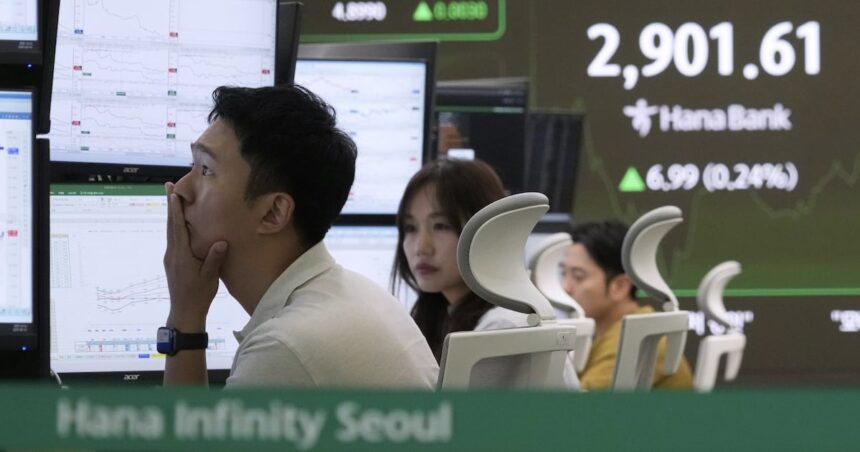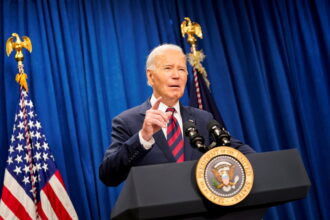Global financial markets displayed remarkable resilience Monday as investors appeared to discount the escalating tensions between Israel and Iran, with equity markets climbing and oil prices unexpectedly retreating despite the ongoing crisis now entering its fourth day.
The muted market reaction comes as a surprise to many analysts who had anticipated significant volatility following Israel’s weekend airstrikes on Iranian military installations. These strikes were executed in retaliation for Iran’s missile attack on Israeli territory earlier this month, marking a dangerous new chapter in Middle Eastern geopolitics.
“What we’re witnessing is investor fatigue with geopolitical risk,” explains Michael Tran, managing director at RBC Capital Markets. “The market has developed a certain immunity to these flare-ups, pricing in the expectation that neither side wants an all-out war that would disrupt global oil supplies.”
Oil prices, typically hypersensitive to Middle East tensions, fell more than 2% with Brent crude dropping to $81.43 per barrel and West Texas Intermediate declining to $77.68. This counterintuitive movement suggests traders believe oil infrastructure will remain largely unaffected by the current hostilities.
Meanwhile, major stock indices worldwide posted gains. The S&P 500 climbed 0.8%, while Toronto’s TSX Composite advanced 0.6%. European markets showed even stronger performance, with the pan-European STOXX 600 rising 1.2%.
The Canada News cycle has focused on potential economic implications for Canadian energy producers and exporters as this conflict unfolds, with Alberta-based companies closely monitoring developments that could affect global energy markets.
Gold, traditionally a safe-haven asset, remained relatively stable around $2,336 per ounce, reinforcing the impression that investors aren’t rushing toward protective assets despite the headlines.
“This market reaction defies historical patterns,” notes Sarah Davidson, chief economist at BMO Capital Markets. “Previous Israel-Iran confrontations would have sent oil prices soaring and equities tumbling. Today’s price action suggests markets believe diplomatic channels will prevail, despite the rhetoric.”
Currency markets showed minor movements, with the U.S. dollar strengthening slightly against a basket of major currencies as investors maintained their focus on upcoming Federal Reserve policy decisions rather than geopolitical tensions.
The World News spotlight remains fixed on diplomatic efforts to de-escalate the situation, with several countries including China and Russia calling for restraint from both sides. Market analysts believe these diplomatic initiatives are contributing to investor calm.
“We’re seeing a remarkable disconnect between headlines and market behavior,” says Jonathan Wilson, portfolio manager at TD Asset Management. “Investors appear convinced that economic self-interest will prevent an escalation that threatens global energy supply chains or shipping routes through the Persian Gulf.”
Bond markets showed modest movement, with yields on U.S. 10-year Treasuries rising slightly to 4.28%, suggesting minimal flight to safety despite the uncertain geopolitical landscape.
For those following CO24 Business developments, the current market response presents a fascinating case study in how modern financial markets price geopolitical risk. The question now facing investors worldwide is whether this apparent complacency is justified or if markets are underestimating the potential for escalation in one of the world’s most volatile regions.
As diplomatic efforts continue behind the scenes, the fundamental question remains: Are markets correctly reading the limited appetite for wider conflict, or are we witnessing dangerous complacency that could leave investors exposed if tensions suddenly escalate beyond the current contained exchanges?










